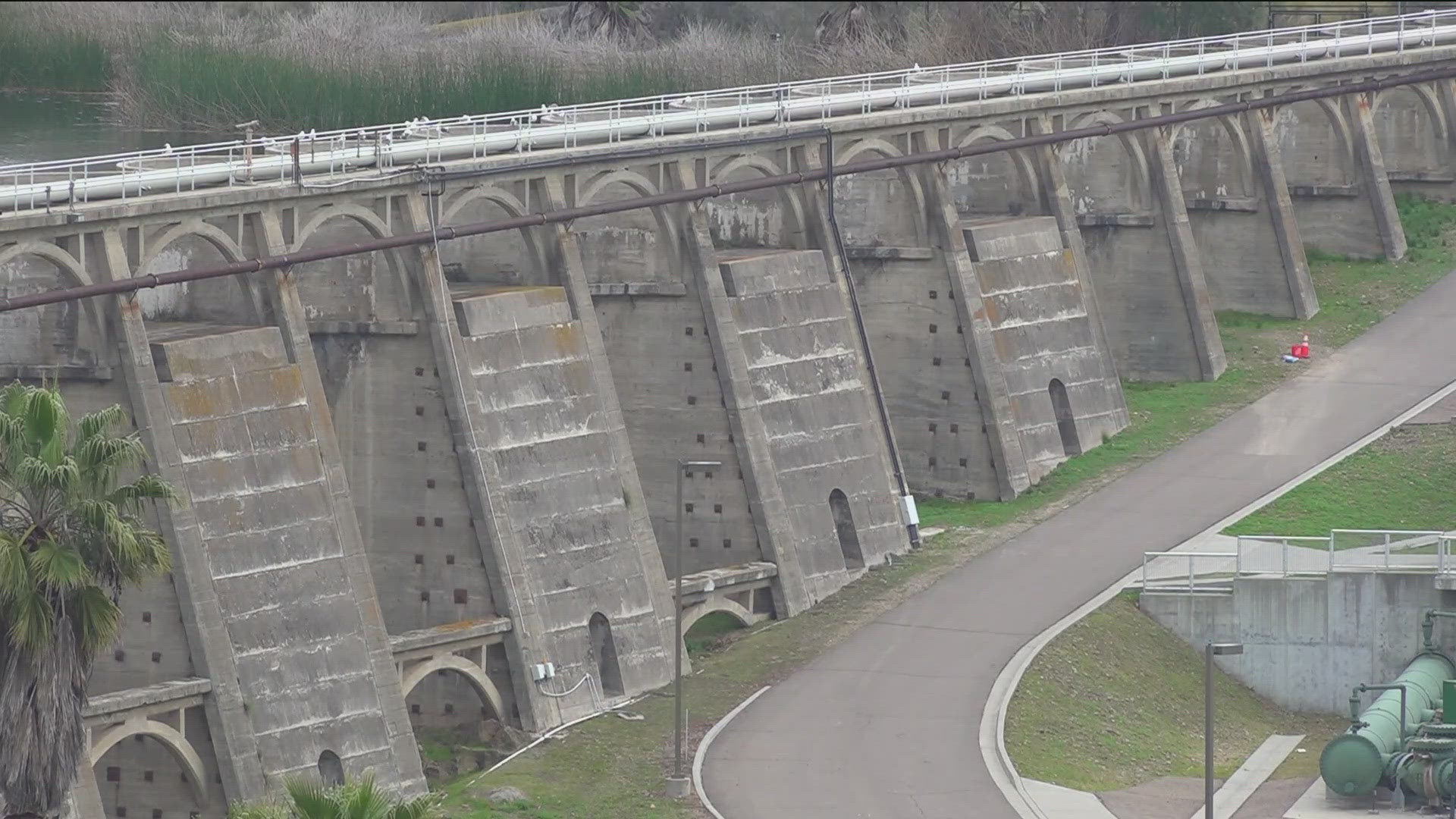SAN DIEGO — CBS 8 is Working for You to make California’s government more transparent.
As journalists, we often face hurdles as we try to dig for the truth, sometimes running up against rampant redactions and elusive catch-all exemptions cited under the California Public Records Act.
The city of San Diego turned to one of these exemptions in its recent response to a CBS 8 public records request related to the safety of Lake Murray Dam in San Diego.
Lake Murray is a reservoir owned by the city of San Diego. The dam at the reservoir is more than 100 years old. Last year, the California Division of Safety of Dams (DSOD) ordered the water level lowered on Lake Murray due to seismic safety concerns.
“We look at all components of the dam itself. Seismic is a very common one because California has a very seismic regime,” said Sharon Tapia, a division manager at the DOSD.
Tapia wrote a letter to the city of San Diego in July of last year stating, "The arches and buttresses at Murray Dam may be overstressed during a seismic event.” The agency ordered the water level lowered to 531 feet above sea level. “So that if the dam were to have any structural issues occur, then you're going to have less water that's released,” explained Tapia.
CBS 8 wanted to look further at what was going on with the Lake Murray dam but getting access to crucial documents on the dam's safety has been anything but transparent.
Tapia's letter to the city was released promptly by the state agency, within three days of CBS 8 requesting it under the California Public Records Act.
Yet, when we requested additional reports on the Lake Murray dam from the city of San Diego, the wait stretched to over a month. When the city finally did release the documents, there was a staggering 40 percent redaction rate (across 59 out of 142 pages), all under the guise of a public records act exemption claiming, "the public interest in non-disclosure outweighs public interest in disclosure."
“Part of the problem with public records law is that the foxes are guarding the chicken coop,” said David Loy, the legal director of the First Amendment Coalition.
“The California Public Records Act has what's called a catch-all exemption, which allows agencies to withhold information if they can prove that the interest in withholding outweighs the interest in disclosure,” said Loy. “The problem here is once they invoke it, they can just force you or me or any member of the public to have to sue them to get the records.”
When CBS 8 pushed back on the redactions to the Lake Murray dam reports, the city’s Public Utilities Department issued a follow-up statement that said, "disclosure of the records would reveal vulnerabilities to, or otherwise increase the potential for an attack on the city's infrastructure."
In effect, the city is saying releasing the information would put Lake Murray dam at risk of a terrorist attack.
Yet, the city has released similar damage assessments on Lake Hodges dam, and Lake Hodges dam is in much worse shape than the Lake Murray dam.
The Public Relations Department showed photographs of huge cracks in the base of Lake Hodges Dam last year during a public hearing in Encinitas.
CBS 8 aired a series of investigative reports on the safety of Lake Hodges dam over the past year, based on unredacted reports released by the city. Only now, when CBS 8 started requesting safety reports on Lake Murray, did we see major redactions to the public records.
“They're called public records for a reason. They belong to the public. They belong to the people,” Loy said.
CBS 8 has now hired an attorney to encourage the city of San Diego to make the records public.
“We the people have a right to know what the government is doing and why and how,” said Loy.
WATCH RELATED: Above San Diego | Drone views over flooded Lake Murray

